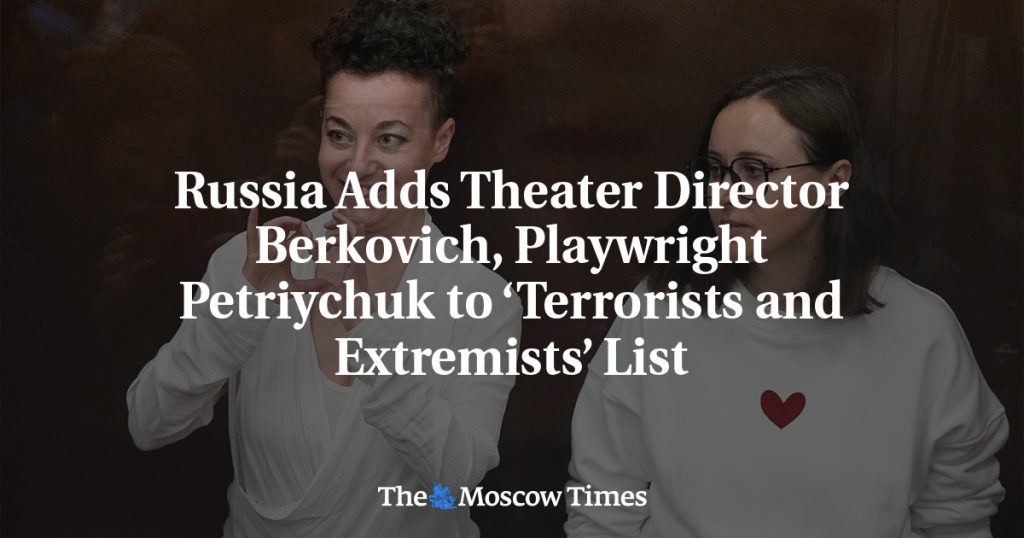Theater director Yevgenia Berkovich and playwright Svetlana Petriychuk were added to Russia’s list of “terrorists and extremists” by the state financial watchdog Rosfinmonitoring in 2023. This was due to their award-winning play “Finist the Brave Falcon,” which tells the story of Russian women corresponding with Islamist militants, falling in love with them, and planning to join them in Syria. Accused of “justifying terrorism,” Berkovich and Petriychuk face up to seven years in prison if convicted, and they will remain in pre-trial detention at least until May 4. Berkovich, who has two adopted teenage daughters, has requested house arrest to avoid negative effects on her children but has been denied.
During a court session, Berkovich highlighted that the play received funding from the Culture Ministry and that its main theme was the victimization of women in modern society. She emphasized that understanding and justifying certain actions are different things. Additionally, since Russia’s full-scale invasion of Ukraine, Berkovich has written emotional poems against the war. Many believe that her anti-war stance and poetry may have been the real reasons for her arrest. The Russian Volunteer Corps, a paramilitary unit fighting alongside the Ukrainian army against Russian forces, was also added to the list of “terrorists and extremists” on the same day.
Being included in Russia’s list of “extremists and terrorists” allows authorities to freeze the bank accounts of those designated without the need for a court order. This move suggests that the government is cracking down on individuals and organizations perceived as threats or opposing the current regime. The case of Berkovich and Petriychuk is seen by many as an example of censorship and suppression of dissenting voices in Russia. Activists and human rights organizations have raised concerns about the increasing pressure on artists, journalists, and other individuals expressing critical views.
The situation highlights the challenges faced by individuals in Russia who speak out against government policies or engage in artistic and creative expressions that go against the official narrative. Berkovich’s case sheds light on the impact of political crackdowns on artistic freedom and the potential consequences faced by those who dare to challenge the established norms. The decision to label individuals and groups as “terrorists and extremists” based on their creative work or advocacy raises questions about freedom of expression and human rights in Russia. It also raises concerns about the fairness and independence of the judicial system in handling cases involving dissent and opposition to the government.
Despite the accusations and pressure faced by Berkovich and Petriychuk, they continue to deny their guilt and fight for their rights and freedom. The support and solidarity of the international community, human rights organizations, and concerned individuals play a crucial role in raising awareness about their case and advocating for justice. The implications of their situation go beyond the individual level and have broader implications for the artistic community, civil society, and freedom of expression in Russia. The outcome of their trial and the response of the authorities will be closely watched by the international community as a reflection of the state of human rights and democracy in Russia.















